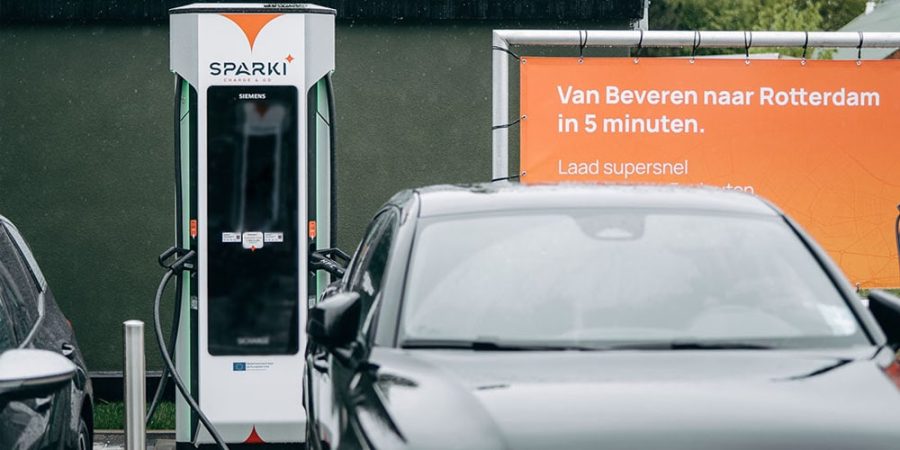Belgium has welcomed a new player in the EV infrastructure sector as startup Sparki emerges with ambitious plans to establish the country’s largest High-Power Charging (HPC) network.
Sparki aims to achieve this feat in less than three years, supported by the Belgian government.
The company recently inaugurated its first five charging locations, with a projected expansion to 200 HPC stations by the end of this year. Sparki has partnered with Siemens, leveraging its charging hardware.
The 300 kW peak power enables drivers to refill 100 kilometres of range in five minutes.
Laurent De Meester, CEO of Sparki, highlighted the growing trend of corporate electric cars in Belgium and projected that the country’s EV fleet would reach two million by the decade’s end.
Sparki aims to support these EV owners with a comprehensive charging network. However, unlike HPC competitors Ionity, Fastned, and Tesla, who primarily focus on highway resting areas, Sparki chooses any busy location and lists main roads leading to cities, popular gas stations, and parking lots of retail chains as examples.
The startup adds it is constantly seeking new location partners and that the business model is simple: the owner provides a location and receives a portion of the profit generated by Sparki. According to the company, this approach also eliminates the need for significant real estate investments.
Customers using Sparki’s charging stations will pay a rate of 0.68 euro cents per kilowatt-hour (kWh), which is on par with Fastned and slightly cheaper than Ionity.
However, Sparki does not currently offer a subscription service, which typically provides discounted rates. The company is considering implementing subscriber tariffs in the future.
Payments can be made through a dedicated app, and credit card payment options will soon be available for unregistered users.
To support Sparki’s ambitions, the Belgian government holds a minority stake in the startup. Prime Minister Alexander De Croo inaugurated the first Sparki station in Deinze and emphasized the country’s leadership in offshore renewable electricity production and the importance of green energy in EV charging infrastructure.
Gilbert van Rens, board member of MAES Energy & Mobility at the Deinze gas station, added, “We were looking for a local partner who could install ultra-fast charging systems at an accelerated pace. Sparki’s ambitious plan immediately appealed to us.”
Sparki currently focuses exclusively on the Belgian market and does not have plans for international expansion. Prime Minister De Croo added he was pleased with Sparki’s exclusive national focus.
“As a government, we invest in Belgian companies like Sparki through SFPIM, which strengthen the sustainable transition by providing a broad network of charging stations,” confirmed Minister of Finance Vincent Van Peteghem.
As an outlook, Sparki lists an ultra-high power charging station on its website built by Willbert aka Euroloop. “You won’t find them in Belgium yet. Not even in Europe,” writes Sparki.
The company plans to install the first of these stations in the autumn of 2023. Note, though, that current electric cars are far from capable of taking such supercharging powers, so we will update you once Sparki delivers more details.





















